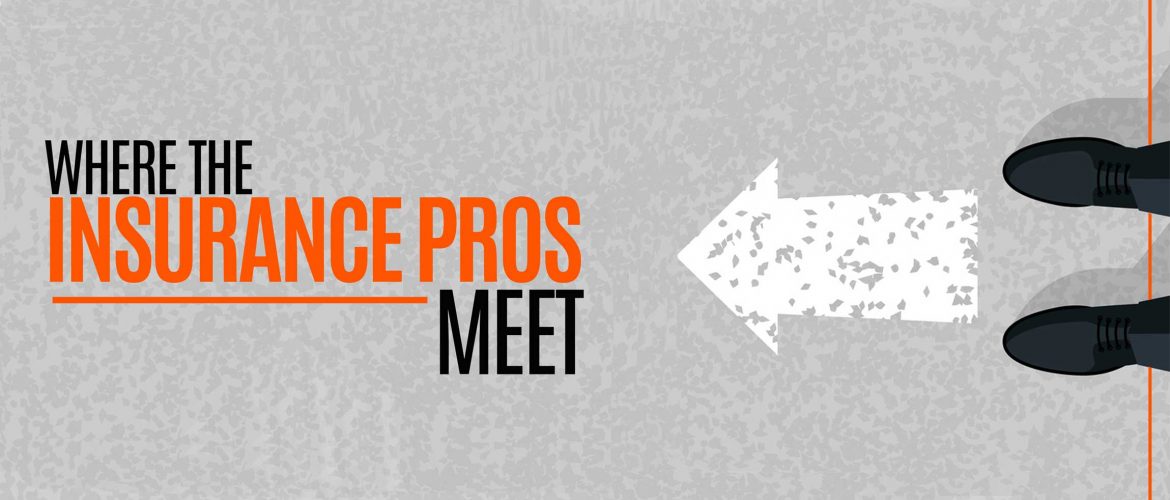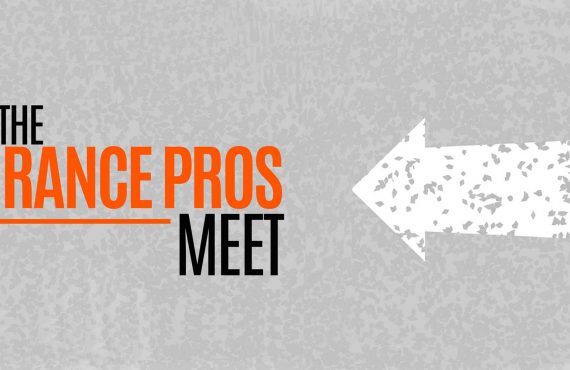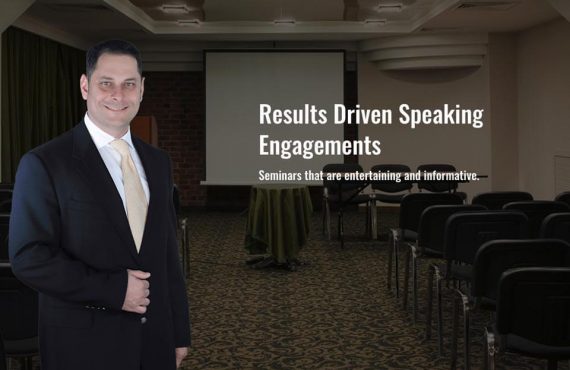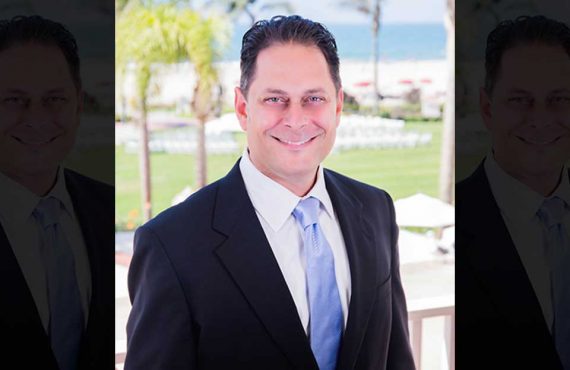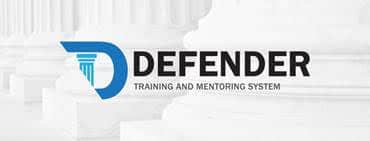Guest Morris Sims shares why you have to know your “why”. Recognizing how purpose drives us can help you finally get to the bottom of your “why” and cause you to excel in business. Thinking on purpose is a must for success. Learn more at MarkMiletello.com.
Note: “Where The Insurance Pros Meet” is an audio podcast and is meant for the ear. A transcript of the audio is provided for referencing a particular section or for you to follow along. Listen to the episode to get the most out of our show. We use both speech recognition software and human transcribers to create the transcripts so they may contain errors. If you’re going to quote us in print, please be sure to check the corresponding audio.
TRANSCRIPT
Speaker 1:
Where the Insurance Pros Meet, Episode 9.
Morris Sims:
Figure out what you’re real why is. You’re going to find out that it is absolutely wrapped in passion, that why drives me to get myself up and out of bed at five o’clock in the morning.
Speaker 1:
Where the Insurance Pros Meet is a podcast that brings the greatest talent in the world together, managers, coaches and producers, the very best experts that insurance and financial services industry has to offer. Get ready to change the way you do business to have your most successful year ever. Now, here’s Mark Miletello, a top 1% producer, manager and your host of Where the Insurance Pros Meet.
Mark Miletello:
Welcome to Where the Insurance Pros Meet. I’m your host Mark Miletello. Today, we’re going to discuss thinking on purpose, recognizing how purpose drives us. Now, our guest has been on Where the Insurance Pros Meet before discussing his book Practical Influence and how influence affects us. But today, we’re excited to having back and share and influence us again regarding another important topic in a salesperson’s mindset purpose. Again, he’s trained over 80,000 agents, managers. I can’t even wrap my brain around the work that he’s done in this field. One of our industry’s thought leaders and coach, Morris Sims, welcome back to the show.
Morris Sims:
Mark, it’s great to be here. Thanks for having me again.
Mark Miletello:
Wow. I’m excited to have you again and thanks for coming back. Such a great topic we had last time, so I’m tremendously excited to jump right in this. But before I do, Morris, do you golf at all or no? Do you try?
Morris Sims:
I tried. At one point in my life, I tried and figured out that every time I hit that little white ball, it would go about 75 yards straight down the fairway and then turn 90 degrees to the right and I had never been able to get past that. My golfing now is at the range with my son having a nice adult beverage while he hits the golf balls.
Mark Miletello:
Well, that way you can enjoy it, right? You and I the last conversation we had was about my late father. And I remember every time I went with him in course, he was my mentor in the business. He was one of the greats in the industry. He was one of the … Well I’ll tell you he was the number one agent under Combined Insurance with W. Clement Stone. I want to have maybe an entire other show about him one day, but I remember being on the course with him and every time I would swing, he would have like five tips so by the time the end of my game, I would have a terrible swing that we tried … We didn’t practice at all. We just went out on the field and by the end of the game, I was swinging this awkward swing and was mentally … I couldn’t even handle pulling that club back and striking the ball because he had so many tips. Finally, after a while, I’d say, “Look, just quit coaching me,” and I think about that and how it relates to insurance and especially new reps that go out there without practicing, without refining their skill and I think they’re going to have a par round in the world of sales and that’s just not the case, is it, Morris?
Morris Sims:
No, it’s not. It takes a lot of focus and a lot of hard work to get there. The key in my mind is that, well, it does take work. Anything that’s worthwhile takes work and this is worthwhile, and it takes some effort, but you can do it. You can do it. It is certainly achievable and has been achieved by thousands and thousands of men and women across the ages. Don’t ever give up. It may be difficult to get started but every minute of work that you put into it, I could promise you that.
Mark Miletello:
Well, and I’ve read in one of your writings that you said what I’ve said on the show, “If I can do it, anyone can.” And of course, you’re being very humble, but I think you’re right in the fact that professional insurance agents and related financial services, we come from all walks of life and there are people that I have recruited and trained. And I would look at this individual and say, “Man, that is one … You’re going to be the best agent I’ve ever brought on board.” Then, I’ve had some that you just sometimes, you cannot tell who wants it bad enough. I think one thing that I’ve learned is it is a learnable skill. It’s those who have maybe this burning desire that we’ve heard many times, this something driving them, but the information is there. We just must learn it and practice it. At golf, there’s no shortage of tips and advice out there to tell us how to be better. Can you start off the show with …? Our show is about purpose but, Morris, can you start off our show with a tip or an advice that we can maybe improve our game with?
Morris Sims:
I’ll be happy to try, Mark. I think it really has to do with just what we’re talking about today, thinking on purpose. That’s a line that hit my mind about a year ago and I realized that very few of us sit down and think on purpose. Our thoughts are the result of stimulus and Lord knows there’s a lot of stimuli out there today from the telephones that we have in our pocket to the computers, to the books, to the people. You see, or you hear something, and you think about it. When was the last time you sat down to think on purpose about what it is you really want in life? I think that’s the key to the whole thing is becoming clear, really crystal clear about what you want and here’s the key, Mark. Be clear about what you want and why you want it. As you were saying earlier, you think it’s that burning desire that people have that make them successful in this business and I would propose that it’s in any business. That really comes back to that “why”. Why do you want to do this? Why are you in this business? What’s important to you? We’ll talk more about this as we go along, but I think that’s the best tip I could give you is to stop, sit down, have a piece of paper and pen, think on purpose what is it you want and why you want it.
Mark Miletello:
Yeah, I guess I can relate to that. We get so busy sometimes that we don’t put our purpose out there, why and our focus and maybe in the short term it’s to pay our bills. But it needs to be much more than that is what you’re saying?
Morris Sims:
It does. It needs to be a whole lot more than that, and it is a whole lot more than that. But we rarely stop to take the time to figure it out. The other thing that I love to tell folks is that when you get down to the real bottom line when you figure out what you’re real why is, you’re going to find out that it is absolutely wrapped in passion and fueled with emotion. Wrapped in passion and fueled by emotion. To pay my bills doesn’t sound very passionate or emotional, but to provide for my family, a house or a home, a house … Let’s take that one for a moment. To provide for my family a house that they can live in that has a nice backyard for the kids to play in can be very emotional when you stop and add the rest of it to that “why” which is I never had a house to live in. We always lived with my Aunt Sarah and Uncle Jim because dad died early, and mom couldn’t afford a house. We lived in apartments after we lived with Aunt Mary and Uncle Jim, and I’m going to get a home and a house for my kids. Now, it’s wrapped in passion and fueled with emotion. When I can remember that, it’s going to change my behavior.
Mark Miletello:
Well, I get it. I get it. That’s why I wanted to have you back, Morris, is I think you’re right on is that rather than focusing on paying our bills or making a sale or this, the why behind it is the purpose. It’s what’s the purpose of us being a success … Or just going out there and going into that grind or the trenches as you call it. Yeah, I totally get that and thanks for sharing that. Morris, we had you once before but for a listener that did not catch that series, you maybe share with us your professional history of where you’ve been and thanks for sharing that personal story and maybe how that shaped your purpose along the way. But I’d love to hear more about your career as well.
Morris Sims:
I’ll be happy to, Mark. It’s kind of interesting. I started my career as a chemical engineer after graduating from Auburn University and did that for five years, and I was mediocre. I was okay. I was getting promoted and good things were happening, but it just wasn’t any fun. I know some really great engineers, and the guys I was working with were really great people, but we weren’t having a whole lot of fun all day long, and you realize that you spend more time with the people you work with than you do with your family sometimes. I wanted to do something that was fun and about that time, my insurance agent came to the house because we had a brand new baby, and I thought, “Gee, you know what? He does look like it could be fun.” Sure enough, the recruiter called me, and we went through a six-month recruiting process and eventually, long story short, I became a New York Life agent and was successful doing that for three years, and they said, “Hey, why don’t you come over here and train other people to do what you do.” I went into management and-
Mark Miletello:
You rose as one of the top trainers not only in that company but in the nation. That’s a pretty big rise to success. Do you feel like just that schooling of accomplishments or did that mindset of having that engineer and scientific mindset helped you in any way in what we do in the world of sales or training or mentoring?
Morris Sims:
It did, Mark. I always had a penchant and a desire to try and help other people. That is what enticed me about training if I could help other people become successful. Folks always say in our business at least, “What do you want to do? Do you want to be a coach or be a player?” If you want to be a player, then stay an agent and go out there on the field every day and play the game and play as hard as you can and help as many people as you can. If you want to be a coach, go into management and then you can help coach those players to be even better at that what they do. I apologize for this sports analogy but that’s the deal. For me, helping other people get better at what they do all day long became one of my why’s, one of my purposes for what I wanted to get up and do every day.
Mark Miletello:
Well, no, don’t apologize for the sports analogy. I do it all the time and in fact, I like the salaries that professional athletes have, and I see some of the greats in our industry do the same. That’s why I want to help our listeners become a professional in this business, so they can experience that upper-level income that this business can reward you with. Last show that I had you and I made a commitment to myself that I was going to try to dig out some of that history in your illustrious career and those relationships that you made. I’m going to say it this time, and can you think of a couple of meetings that you’ve had or relationships that you’ve met along the way in a 30-year wonderful career of leading one of the nation’s largest and most prominent life insurance companies? I want to know a little bit of maybe some of those people that you’ve met along the way.
Morris Sims:
As I began to move into management, the managers that I had at the general offices, the local agencies that I worked in Monroe, Louisiana and Little Rock, Arkansas were some absolutely great individuals and about as opposite of two people as you might ever want to know. The first gentleman, [Markie Jones 00:12:38] was an absolute expert at recruiting and managing and being … I learned more from him about how to do that job of coaching agents than probably anyone else in the world. Then, I went up to Arkansas and I had a gentleman there, Tom Gilder, who was just a wonderful relationship person. He had never met anybody he didn’t know and love and care about, and the people around him and his agents were … They would follow him into whatever battle he wanted to lead them into or jump off whatever cliff he wanted them to jump off, and I was usually out there in front saying, “I’ll do whatever Tom tells me to do.” He was just that kind of an individual.I learned a lot about building relationships with him. The other guys, I’ve had the privilege of knowing, three CEOs at my company at New York Life. I’ve known a whole bunch of executive and senior vice presidents and these are people who some of them began as agents and became head of distribution for huge billions, several billions of dollars’ worth of insurance company. These guys all had one thing in common, I believe, they all cared about what they were doing, and they cared about the people they were doing it for more than they cared about themselves. I think that is always going to be the bottom line with truly long-term success. Now, you may have some short-term success out there with people that are ahead, just for them that are greedy and all they want is them and they’re all that’s important. I think when you find a long-term success, you’re going to find someone who does genuinely care about other people. Let’s look at Bill Gates and Warren Buffet, they’re talking about giving away what, half or three-quarters of everything they own? Because they care about helping other people. I think that’s probably the bottom line for the whole thing, Mark.
Mark Miletello:
Well, thanks for sharing that and it just reminds me that most of the greats in this industry stand on the shoulder of others. I think it’s kind of nice to give a shout out to those whether they hear it or not or whether anyone connects or not, at least you are able to share the influence that they’ve had on you. Getting back to really your professional advice and when you say thinking on purpose, you explained that in the opener a little bit about what you mean on thinking on purpose. I think back to the conversation we had about focusing on what you want and more of the “why”, more of the purpose. But don’t we really all have an idea of what we want in life but how does that relate to our business?
Morris Sims:
Another great question, Mark. The key I think is this: We all think we know what we want. We all believe that we have our purpose and it’s probably pretty well lined out. Yeah, I’m sure there are plenty of our listeners out there who are saying, “Hell, no, not me. I really don’t. I’m just going through the motions.” That’s okay too but at some point, in time, you have to stop and realize I need to make sure that what I think is my why, why I do this every day, I need to make sure really is what resonates them deep in my soul. I need to make sure that it really is much more than going to work every day and doing what I’m told to do for eight or six or 10 hours or whatever the case may be. Thinking on purpose means you take that time, as I mentioned earlier, to sit down and actually think about what it is you want in this world, in life, what it is you want and why. I think the why is probably again the most important part of the whole deal.
Mark Miletello:
Yeah. I’ve heard you say that and Richard Weylman used that. We talked about that considerably. Why is why that important in just the words that you use?
Morris Sims:
I think it’s the most important thing there is out there. We can forget about a lot of things but if we ever forget our “why”, then we’re in deep trouble. Why is the reason that I set the alarm clock for 5:00 a.m. and get up every day. I’m loving what I’m doing right now, Mark, so much. Thirty-two years with a great company was fantastic but I wasn’t as excited about getting up in the morning as I am today. That alarm clock goes off at five o’clock and I’m up and excited about what I’m going to get to do today and how this day is going to go because I know why I’m doing it. I’m doing it in order to accomplish what I want for my family. I’m going to be able to provide for them the things that the choices … I want to give them the choices that they’d never been able to have before because either I was working all the time or traveling but I want to give them those choices to be able to do things they’ve never been able to do before and I want to fund our charities. We have charities that were involved with that feed hungry people. I want to fund those charities and that means, I’ve got to go out and help people and help them well enough and help them enough that they’re willing to provide some revenue for my company. In doing so then, I can fund my charities and help my family. That why drives me to get myself up and out of bed at five o’clock in the morning and start on the journey of that day to figure out what I can do to be of service to the folks out there in the world that are trying to find their own purpose and get up and get going every day.
Mark Miletello:
Well, exactly. I believe in my career, I just don’t think sometimes we coin it. We realized we put it down on paper that while we’re doing things, we set goals and we have benchmarks, but really, you’ve said it perfectly that really the purpose that we’re going for if we can really write down and focus on the purpose. I remember as a brand-new agent, I wanted a Harley so bad and I guess, in the South, you mentioned Monroe, Louisiana. I don’t know if you know that that’s where I’m from, so I love you already.
Morris Sims:
Fantastic, yeah!
Mark Miletello:
I had this picture of … Every time I would open my desk drawer, I would see the picture of Harley. Then, I ended up owning a Harley and wrecking it, almost killing myself so therefore, that purpose, that why kind of faded away. But I think especially a younger agent that did not have really a family and all those charities to support maybe, that has to be a motivator. You’re why, the purpose you’re getting up must be something other than, like I said earlier, just paying your bills. You need a big … Like Gary Kinder, I guess, would say, “Audacious [Harry 00:20:04] Dream.” How do you think on purpose to get to your why? How does purpose drive you to get to what drives you?
Morris Sims:
The real deal is what I mentioned before. It must be wrapped in passion and fueled with emotion. If we can get it back down to something that really motivates us to move, then it’s going to be easier to pick up the phone and make those calls. It’s going to be easier to go walk into that business that you’ve never walked in before and try and meet the guy that owns the business or the lady that runs the show. You got to have that “why” to make that last call and then make one more call before you go home in the evenings.
Mark Miletello:
That might be the difference, I think.
Morris Sims:
That’s right.
Mark Miletello:
That might be the difference in why some get through and give it that extra effort.
Morris Sims:
I think so entirely. I absolutely believe that. For me, personally, it was always about building the family and getting the family to the places that I wanted them to get to. Quick story, Mark, it might wind up on the editing floor and that’s okay. My dad died when I was three weeks old. He decided that he didn’t need to be around anymore. He took his own life. From that point forward, mom had two kids to bring up in this old world. We literally did live with my aunt for a while and then live in apartments until I bought the first house that I ever lived in with my lovely bride, Carla, in New Orleans. I wanted my kids to have those things that I never got to have. I wanted my kids to be able to do those things that I never got to do. That’s what fueled me every day and let me tell you, buddy, that’s wrapped in passion and fueled with emotion even today. It still is and that’s what gets you up and gets you moving is when you can find that thing that you really are passionate about, that thing that really does touch your heart. And that’s why I’m getting up, and that’s why I’m making that phone call, and that’s why I’m going to make one more call before I go home. That’s what you’re looking for, for sure, I believe.
Mark Miletello:
Well, thank you for sharing that. I’m very, very sorry, but I am very warmed to hear the story when you bought your first house. I bet that was a defining moment in your career. I know I have some of the same types of goals that I had said, and I think back to those moments that really were special, those benchmarks that your purpose and your why came together and provided you with really what this business can provide you, the great lifestyle that this business can provide you with. So, thank you for sharing that.
Morris Sims:
Well, you’re very welcome. I think the other piece that really has to be there, and the heart of any good insurance agent today is what you’re doing for others. If you can get in your head and in your mind the fact, it’s not just the thing, it’s the fact that what you do helps people, what you do makes a difference in their lives and it changes their lives for the better. When you can get that focus to realize that, “I’m going out tonight to help these folks plan for their retirement. And you know what? And the possibility that if I don’t go out there and if I don’t do that with them and do it well, they may not have the same kind of retirement they could have as if I were to go out there and do that work.” You got to believe in what you do, Mark. One of the old objections that I used to hear from is, “Well, that guy just told me he doesn’t believe in life insurance.” You know what? You don’t have to believe in life insurance to own it, but you certainly must believe in it if you’re going to sell it.
Mark Miletello:
Exactly. Well said, and I think back of how I worked with agents and I think one of the most important things that I’ve tried to instill in my team and those I work with is taking care of the client, helping them find their “why”. Like you’ve said before, you help others get what they want, and you get what you want, and I think that that’s one of the most important things is that we help clients figure what their “why” and protect their “why”. Why are they buying that life … They may not believe in that life insurance, but they may believe in what happens if disaster strikes or when disaster strikes because at some point, it’s going to happen. Normally, in this part of the show, I talked about professional predictions 10 years down the road. But I’m going to change it up a little bit because you’ve been on the show before. As a coach and leader, what I’d really like to know is thinking on purpose, how purpose affects me? How it affects my clients? How it affects my agents? How is my purpose going to drive me in the future? How can I best use it because I think, especially as a veteran in the business, we get so busy that we don’t stop and set goals and do things a lot of the things that we did when … The basics of building a business. I think as a veteran, sometimes I tell my agents to set goals and think about their purpose and their “why”, but I don’t … In the future, how can we do a better job of focusing on purpose, thinking on purpose to help drive us to be where we want to be in our life and our career?
Morris Sims:
I think, Mark, many times, we are thinking as I mentioned earlier, we’re thinking in response to some stimulation. And for our veterans out there, I know for me at least when I had been doing the job I was doing in New York for 20 years, it kind of got to be old hat. I knew what I was supposed to do. I didn’t really have to think about it a whole lot because it was what I do. But every now and again, there would be something that would come along that would cause me to have to stop and really sit down and think through again what it is I’m doing, why I’m doing it, and how I can do it better because until I know why I’m doing it and what it is I want and why I want it, I can’t necessarily work at getting better at doing what I do. Example, if I don’t know where I’m going, if I’m going to take a trip and I don’t know what the destination is, where do I want to go, then geez, it’s going to be pretty hard to get there and it’s going to be even more difficult to line it out on the map as to how I want to go from here to there. The same thing is true with our work. If we don’t know what it is we’re trying to achieve and why we’re trying to achieve that, then you don’t know what to work on to get better. You don’t know where those things are that you need to hone, the skills you need to hone, the things you need to practice getting better at, the things that you could be doing but you just hadn’t thought of because you’ve never done it before. You won’t go to that level of thinking unless you do it on purpose unless you sit down and take the time. Study groups are so vitally important, I believe, in our industry where three or four or five top producers come together and help each other and guide each other and ask questions of each other. Some of the best business coaches in the world who ask those difficult questions about what is your strategy, how are you improving yourself to be able to carry out that strategy that is, every time you go out in the field to implement it and what do you need to do differently today? And finally, what are you not doing that you ought to be doing? And what are you doing that you ought to stop doing? There are many things that especially after we’ve been in a business for a long period of time that chances are we probably shouldn’t be doing anymore, or if it should be done, it should be done by somebody else. And there are probably things that we need to do more of or things that we don’t even know we need to do yet until we say, “I had to really think about it,” and spend some time away from the rat race, away from the noise. And in fact, physically even getting away for a day or a weekend and maybe you and your spouse go out for a weekend, and you spend some of that time just talking with each other about what it is that you want for your family and for your life and how can you get there? What can you do differently to accelerate that operation? I still believe that that’s some of the most important time that we can spend with our family and with ourselves and our business.
Mark Miletello:
Well, great advice, and I needed that. I don’t know, I just needed that. I need to do a better job of that, and I need to do that from a family standpoint as well. Thank you for that advice. You may not be a professional golfer, Morris, I’m sorry to hear that, but one thing you are is a consummate professional in our industry. And we respect your tips and your recommendations. I’m going to put you on the spot because on the last show, you kind of gave us a couple of places to go and I appreciate that. I’ve got several books coming in from Amazon, mainly yours a while back but others as well turning me on to some great people to follow. Give us your professional recommendation on who we should maybe think about, read about when it comes to purpose.
Morris Sims:
There are several authors out there that still mean the most to me on a regular basis. I posted something on LinkedIn not too long ago, and one of the wonderful people who took the time to comment said … Just two words, he said, “Old school.” And I saw that and I laughed and I thought, “Yeah, it is.” It’s been around for a long time. But I also believed that every generation must learn some of these basics about sales and success all by themselves. They have to learn it on their own because it just doesn’t resonate until they discover it until it’s an “aha” in their own minds. I can talk until I’m blue in the face but until they have some experience that lights up their brain and lights it up for them and lets them see that, “Oh, yeah. That is important.” Knowing exactly what your purpose is and why is important. They’ve got to have that aha experience. And some of the folks that did that or helped me with that when I was growing up in the business-
Mark Miletello:
Yeah, give us some old school recommendations.
Morris Sims:
Folks like Og Mandino. He’s got a great story. Read about his life. It’s amazing, and then read his books, The Greatest Salesman in the World part 1 and part 2. And Mark, I’ve got a hard copy of part 1 that he signed.
Mark Miletello:
Oh, wow.
Morris Sims:
I’m very proud of that one. But he’s got a whole series of books, The Greatest Miracle, The Greatest Salesman, The Greatest … Everything you can think of, and they all will touch your heart and give you very practical things that you can do to help you in your business.
Mark Miletello:
I agree.
Morris Sims:
And the other one is another old school that you and I talked about and chatted about before, Napoleon Hill. Think and Grow Rich, you talk to any business person out there that’s been around for a while and then say, “Have you ever read Think and Grow Rich?” They’ll say, “Oh, yeah. Absolutely. I read it 10 years ago, five years ago, 20 years ago.” But nobody ever asks, “Have you implemented what Napoleon Hill taught you in the book Think and Grow Rich?” Because what we find is that most of us will read a book like that and say, “Yeah, man. That’s great. I’m going to do this. I’m going to start my own mastermind group,” which is one of the recommendations that he makes. And then we’ll think about it. We’ll talk to a couple of people about it, and then we get all locked up in the rat race of doing what we do every day and we never implement what we learned. Think and Grow Rich is a great book, a great reference book as well. But I would challenge you to actually take a piece out of there and commit yourself to implementing it in your life and in your business and see that commitment through to the end. Get some support. Get some help, but carry it all the way out, and that’s what’s going to change your life.
Mark Miletello:
You said rereading something when it triggers a different time or a different meaning to you and of course, I had a podcast with Tom Hegna, one of the greatest out there, and I mentioned to him that I read this book twice in the past. But after a recent read, it meant something totally and I finally got it. I think sometimes, yes, definitely the Og Mandino, Napoleon Hill books I hope is on every insurance agent’s shelf. But I recently reread and unfortunately, a year and a half ago, my father passed away and I wanted his book library. And he’s got some old pictures and books with his writing in it. And so, it kind of motivated me to go back and read those very two books again, and they just meant something totally different to me in my career. I appreciate you saying that. I totally agree.
Morris Sims:
Yeah. I think it is the most important thing that we can do is continue to work on our own development and so many times, our own development means remembering something that we may have thought of long time ago or looking at it with a different point of view. You’re absolutely right.
Mark Miletello:
It may not be old school, right?
Morris Sims:
It may have been created a long time ago, but it certainly is relevant for today.
Mark Miletello:
Right. Well, I can’t tell you Morris Sims how much I appreciate you being a returning guest on the show Where the Insurance Pros Meet. I want to thank you for your time and your expertise, and how if there are some leaders out there listening to this or agents, I know that we can bring you in to speak and do classes. Are there events? How do we do workshops? How do we get to tutor under you? Where do we follow you?
Morris Sims:
I say it’s probably the website. And again, it’s one of the most creative names I could come up with. It’s www.morrissims.com. That’s Sims with one M, so it’s morrissims.com.
Mark Miletello:
Well, you’re one of the greats. We’ll definitely find you, but I guess my question I wasn’t too specific, what do you offer in terms of maybe teams trying to focus in on what we’ve discussed?
Morris Sims:
Oh, thanks. Several workshops that we do, the Three Steps to Accelerate Your Success Now having to do with being real clear on your purpose, creating an action plan and creating a support system that will be there for you and that will never fail. That’s a half day workshop that can be made to accommodate whatever venue and need an agency might have, or a company might have. That is, for sure, one. I have another workshop on influence, of course, that we do as well that’s backed up by the book, Practical Influence. And then we do some customized work for folks who say, “Gee, Morris, in my agency we’re really having a problem with X, Y, Z.” And together then, we can craft some training opportunities that will help those agents get better at X, Y, Z, whatever that may happen to be. And, I think the hallmark of any of the training that I’m fortunate and blessed enough to be able to do has two things going on with it, Mark. One is it doesn’t happen unless there are practical things that the agent walks away with that can help them change their behavior in their business that day. I believe very strongly that we don’t do training for training’s sake. We do training to change our behavior and help us get better at what we do all day long. It’s got to be practical. That’s the most important thing that comes to it as far as I’m concerned. And the second thing that is there is the follow-up. How many times, Mark, have you been to a seminar or workshop, and you get this really nice binder and all sorts of stuff in it. You brought it back to your office, you put it on the shelf and it’s still sitting there today and hadn’t moved.
Mark Miletello:
Yeah.
Morris Sims:
I know I have a thousand times. Follow-up is so very important for us as human beings because we do get back in that rat race. With the workshops that we do, there’s always an opportunity for follow-up webinars or phone calls or individual coaching that can be done to help agents and managers improve and implement the things that they need to implement in order to get better.
Mark Miletello:
Well, wonderful, Morris. I appreciate it, and I love the fact that you and I are alike in the fact that I want people changed. I want something changed today. I don’t want to pump you up and get you motivated and send you out the door. I want something positive to happen. And that’s the type of professional you are and that everything you do. Even in your book, I noticed at the end of each chapter, there’s an action plan. Thank you again for being a guest on the show. And hopefully, we’ll have you again in the future, and I look forward to getting to know you and following you as well. If you like what you hear on the show, go to iTunes. Rate and review it. It will help others find us, and you can follow me, Mark Miletello at, of course, markmiletello.com. Thank you for being a guest on Where the Insurance Pros Meet, Morris, and we’ll see you soon.
Morris Sims:
Thanks, Mark. I really appreciate the opportunity. Have a great week.
